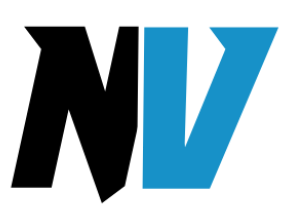How to Manage Debt During a Financial Crisis or Emergency starts with understanding the significant challenges posed by sudden financial disruptions like job loss, medical emergencies, or global economic downturns. These situations can drastically reduce income or increase financial obligations, making it difficult to cover daily expenses and meet debt payments. During such crises, managing debt becomes critical, as financial obligations persist or even grow while income declines.
Debt is generally categorized as secured or unsecured. Secured debts, such as mortgages or car loans, are tied to collateral, meaning failure to pay could result in losing essential assets like your home or vehicle. Unsecured debts, such as credit cards or personal loans, lack collateral but often carry higher interest rates. Prioritizing repayment of secured debts during a financial crisis can help protect critical assets while devising a plan to address unsecured debts minimizes long-term financial strain.
A financial crisis severely impacts personal finances, widening the gap between income and obligations. This can lead to defaults, increased penalties, and harm to your credit score, causing financial and emotional stress. Recognizing the consequences of different types of debt helps you formulate a practical plan. Managing debt during a financial crisis or emergency requires the following strategies:
1. Assessing Your Current Financial Situation
To manage debt effectively during a financial crisis, the first step is to take inventory of all your debts. List every outstanding financial obligation, including credit cards, student loans, personal loans, and overdue bills. Along with the total balances, make note of the interest rates and monthly payments for each debt. This clear overview will help you understand the scope of your financial situation and allow you to tackle it strategically. “You can’t manage what you don’t measure,” as the phrase goes. The first step in controlling debt is understanding your financial situation.
Once you’ve compiled your list, the next step is to categorize your debts by priority. Focus on high-interest debts such as credit cards and payday loans, as these can quickly spiral out of control if left unpaid. Debts that could result in severe consequences, like home foreclosure or car repossession, should also be given immediate attention. As Benjamin Franklin once wisely said, “An ounce of prevention is worth a pound of cure.” By addressing the most urgent debts first, you prevent larger financial disasters down the line.
After organizing your debts, it’s time to evaluate your income and expenses. Review all sources of income, whether from employment, unemployment benefits, or side gigs and compare them with your monthly expenses. Identify any gaps between income and expenses so you can figure out where to cut costs or find additional income. In times of financial crisis, budgeting becomes crucial to surviving and staying afloat.
Finally, a solid understanding of interest rates and penalties will guide your debt repayment strategy. Focus on debts with the highest interest rates first, as they cost you the most in the long run. If some debts carry heavy penalties for late payments, those should also be prioritized. As said by Warren Buffett, “The most important thing to do if you find yourself in a hole is to stop digging.” When there is a financial crisis, it is critical to act swiftly to stem the flow of high-interest and high-penalty debt.

2. Prioritizing Debt Payments
During a financial crisis, prioritizing debt payments is crucial to managing your financial situation effectively. Start by focusing on high-interest debts, such as credit cards and payday loans, which tend to compound quickly. Paying these off first reduces the overall interest you accrue, helping to lower financial stress more rapidly. By tackling these costly debts head-on, you can prevent them from spiralling out of control and save money in the long run.
At the same time, it’s important to maintain minimum payments on lower-interest debts. This helps you avoid penalties, keeps your credit score intact, and prevents further complications. Once you’ve made progress on the high-interest debts, you can direct more of your resources toward these lower-priority obligations, ensuring you remain in good standing with creditors without adding undue financial strain.
Additionally, explore options for deferring certain types of debt, like student loans or mortgages, which may offer relief during a crisis. Many lenders provide hardship programs or deferment options that allow you to temporarily pause payments without incurring penalties. Contact your lenders to see if these programs are available, giving you more flexibility in managing your finances and prioritizing urgent debts.
3. Communicating with Creditors
When facing a financial crisis, one of the first steps in managing debt is to communicate openly with your creditors. As soon as you anticipate difficulty making payments, it’s crucial to reach out to them before falling behind. Many creditors, especially during widespread crises, have hardship programs in place to assist borrowers. These programs often offer options like payment plans, deferments, or reduced interest rates, making it easier to manage your obligations while protecting your credit.
Another big comfort is negotiating better terms with your creditors. Be proactive in discussing your financial situation and requesting lower interest rates or alternative payment schedules. Many lenders are willing to work with borrowers, especially if you have a history of making payments on time. By restructuring your debt, you may be able to reduce your monthly payment amounts, allowing you to better manage your financial situation and avoid defaults.
In some cases, requesting a temporary deferment or forbearance may be an option. These programs allow you to pause your payments without incurring penalties, giving you some breathing room during a financial crisis. This is particularly common with student loans, mortgages, or car loans. By taking advantage of deferment options, you can temporarily redirect funds toward more pressing financial needs without the risk of accruing additional debt.
Lastly, explore any hardship programs your creditors may offer. Credit card companies and banks often have specific programs designed for individuals experiencing financial difficulties. These programs may offer reduced interest rates, smaller payment amounts, or even temporary suspensions of payments, depending on your situation. Applying for a hardship program can provide much-needed relief during a crisis and help you maintain control over your debt.
4. Creating a Crisis Budget
Creating a crisis budget is essential when facing financial uncertainty, as it allows you to prioritize your spending and manage debt more effectively. Making the distinction between necessary and non-necessary expenses is the first step. Essentials include necessities like rent or mortgage payments, utilities, groceries, and minimum debt payments. Non-essential expenses, such as entertainment, dining out, or subscription services, should be postponed or eliminated during a financial crisis. This adjustment helps free up funds for more urgent financial responsibilities.
Once you’ve identified non-essential spending, it’s time to make cuts. Temporarily halting luxury purchases, vacations, or buying new clothes can significantly reduce your overall expenses. These cuts may feel restrictive, but they are necessary to relieve immediate financial pressure. The money saved by reducing these expenses can be redirected toward more important areas, such as paying off debts or covering everyday living costs.
After trimming non-essential spending, allocate as much of your available funds as possible to cover your essential living expenses and make debt payments. Prioritize high-interest debts, as paying these down will reduce long-term financial strain. However, make sure you’re also covering the minimum payments on all other debts to avoid penalties or further damage to your credit. Being strategic with your budget ensures that your most urgent obligations are handled first.
Even during a financial crisis, it’s important to set aside a small portion of your budget for emergency savings. This may seem difficult, but having a modest emergency fund can prevent the need to take on additional debt if an unexpected expense arises. Whether it’s a car repair, medical bill, or any other unforeseen cost, emergency savings provide a financial buffer that can help you avoid deepening your debt during a crisis.
5. Exploring Debt Relief Options
Exploring debt relief options can be a critical step during a financial crisis, as these solutions can make managing your debt more manageable. One option to consider is debt consolidation loans, which allow you to combine multiple debts into a single loan, often with a lower interest rate. This strategy simplifies your payments by consolidating them into one monthly instalment, and over time, it may reduce the total amount of interest you have to pay. For people juggling multiple high-interest debts, consolidation can be a practical way to streamline financial obligations.
Utilising a credit card for balance transfers is an additional possible remedy. Some cards offer introductory periods with 0% interest on balance transfers, allowing you to shift high-interest debt from other accounts. This can provide short-term relief from interest charges, giving you a window to pay off the balance without incurring additional costs. However, it’s essential to pay off as much of the balance as possible before the promotional period ends, as the interest rate will typically rise afterwards, potentially worsening your situation.
For people who are drowning in debt, there is also the alternative of debt settlement programs. These programs negotiate with your creditors to reduce the total amount you owe, offering a way to settle your debts for less than the full amount. While this can provide significant relief, it often negatively affects your credit score in the short term. Debt settlement is typically a better option for people who are unable to pay off their debts in full and are looking for a bankruptcy alternative.
Bankruptcy should only be considered as a last resort after exhausting all other debt-relief options. Filing for bankruptcy can discharge some or all of your debts, offering a fresh start. However, it comes with severe long-term consequences, such as damaging your credit score and limiting your ability to borrow money or secure housing in the future. Before pursuing bankruptcy, it’s essential to carefully weigh the benefits and risks and consult with a financial advisor or legal expert to determine if this is the right option for your circumstances.
6. Utilizing Government and Community Resources
During times of financial crisis, it’s essential to tap into available government and community resources to help manage your situation. Many governments offer programs on how to manage Debt during a financial crisis or emergency designed to provide immediate relief. These programs may include unemployment benefits, stimulus payments, or direct financial aid to help cover rent, utilities, and other essential expenses. Taking advantage of these resources can provide temporary relief and help stabilize your finances as you work on a long-term solution.
If you’ve experienced job loss or reduced working hours, applying for unemployment benefits is a crucial step. These benefits are designed to provide temporary financial support until you’re able to find new employment or recover your lost income. Many unemployment programs have expanded eligibility during crises, so even if you don’t normally qualify, it’s worth checking to see if you can receive aid. This income can help you cover basic living expenses and manage debt during a difficult time.
Local charities and nonprofits can also be valuable resources during a financial emergency. These organizations often provide essential services like food assistance, temporary shelter, utility payment support, and debt relief programs. Community-based organizations are more accessible and can offer immediate help, especially when government aid is delayed or insufficient. Reaching out to these groups can make a significant difference in easing financial burdens during a crisis.
Additionally, there are government debt relief initiatives that can provide longer-term assistance. Programs like student loan forgiveness or mortgage assistance are designed to help borrowers manage their debts, particularly during widespread economic crises. These initiatives often provide more favourable repayment terms, such as deferment, forbearance, or even forgiveness, depending on the circumstances. Researching and applying for these programs can help you manage your debt more effectively and relieve financial pressure during challenging times.
7. Considering Professional Financial Help on How to Manage Debt During a Financial Crisis or Emergency
Considering professional financial help during a financial crisis can provide valuable guidance and support. Working with a nonprofit credit counselling agency is a great first step. These agencies can help you create a budget, assess debts, and negotiate with creditors to establish a manageable payment plan. Their services are typically free or low-cost, making them an accessible option for those needing help with financial planning during tough times.
One solution a credit counsellor might suggest is a debt management plan (DMP). With a DMP, the counsellor negotiates with your creditors to lower interest rates and consolidate your payments into one monthly amount. This simplifies debt repayment, making it easier to stay on track during a financial crisis. By streamlining your payments and reducing interest, a DMP can provide much-needed relief and help you regain control of your finances.
Hiring a financial advisor can provide more individualized, long-term methods for managing debt and regaining your financial stability, in addition to credit counsellors. A financial advisor can analyze your specific situation, offering expert advice on how to navigate the crisis and plan for the future. Whether you need help creating an emergency savings plan, restructuring debt, or rebuilding your credit, a financial advisor can provide valuable insights tailored to your unique financial goals.
Avoiding Common Debt Management Pitfalls
One common pitfall in debt management during a crisis is the temptation to take on new debt to cover immediate expenses. While it may seem like a quick fix, relying on credit cards or loans can add to your financial burden in the long run. Instead of accumulating more debt, focus on managing your existing obligations and exploring alternative ways to cover essential expenses, such as cutting costs or seeking assistance from available resources.
It’s also important to steer clear of predatory lenders who target people in financial distress. Payday loans, title loans, and other high-interest lending options may seem appealing during a crisis, but they often come with exorbitant rates and fees that can lead to a cycle of deeper debt. Avoid these high-risk options and prioritize more stable, low-interest alternatives if borrowing is necessary.
Lastly, be vigilant about scams and fraudulent offers, which increase during financial crises. Scammers often pose as debt relief services, promising quick solutions but asking for upfront fees or offering unrealistic guarantees. Always research any debt relief service you’re considering, ensuring they have proper accreditation and a transparent track record. This caution will help you avoid further financial harm.

Long-Term Strategies for Financial Stability
One of the most important long-term strategies for financial stability is building an emergency fund once your situation stabilizes. Aim to save 3-6 months’ worth of living expenses to create a financial cushion for unexpected events like job loss or medical emergencies. This fund will provide a safety net, preventing future financial crises from forcing you into debt or derailing your progress. If you must, start little at first, but gradually increase your savings by making regular contributions.
If your credit score took a hit during the crisis, focus on improving it as part of your recovery plan. Rebuilding your credit involves making consistent, on-time payments, paying down outstanding debt, and avoiding new credit inquiries unless necessary. Over time, these steps will gradually improve your credit score, helping you regain access to better loan terms, credit opportunities, and lower interest rates in the future.
Once the immediate crisis has passed, it’s crucial to develop a structured debt repayment plan to tackle any remaining debts. You might think about employing tactics like the avalanche approach, which emphasizes paying off high-interest bills first to reduce interest payments, or the snowball method, which pays off smaller debts first to gain momentum. Whichever strategy you choose, having a clear and disciplined approach will help you eliminate your debt more effectively.
Lastly, adopting healthy financial habits is key to preventing future crises. Take the lessons learned from the current situation to implement good financial practices, such as regularly budgeting, saving a portion of your income, and avoiding unnecessary debt. By reviewing your financial situation regularly and making adjustments as needed, you’ll be better prepared to face future emergencies and maintain long-term financial stability.
Conclusion
How to Manage Debt During a Financial Crisis or Emergency requires a proactive and strategic approach to navigate financial uncertainty effectively. Start by assessing your current financial situation and prioritizing high-interest or secured debts to prevent deeper financial distress. Communicating with creditors, exploring relief options, and creating a crisis budget can help stabilize your finances and address immediate challenges.
Leveraging available resources is equally important. Seek assistance through government programs, community aid, or financial counselling services to ease your burden during the crisis. Once the immediate situation is under control, focus on long-term recovery by building an emergency fund and adopting sustainable financial habits.
Managing debt during a crisis involves balancing short-term stability with long-term financial security. By staying disciplined and leveraging support, you can navigate through tough times and emerge more financially resilient.


Good 👍